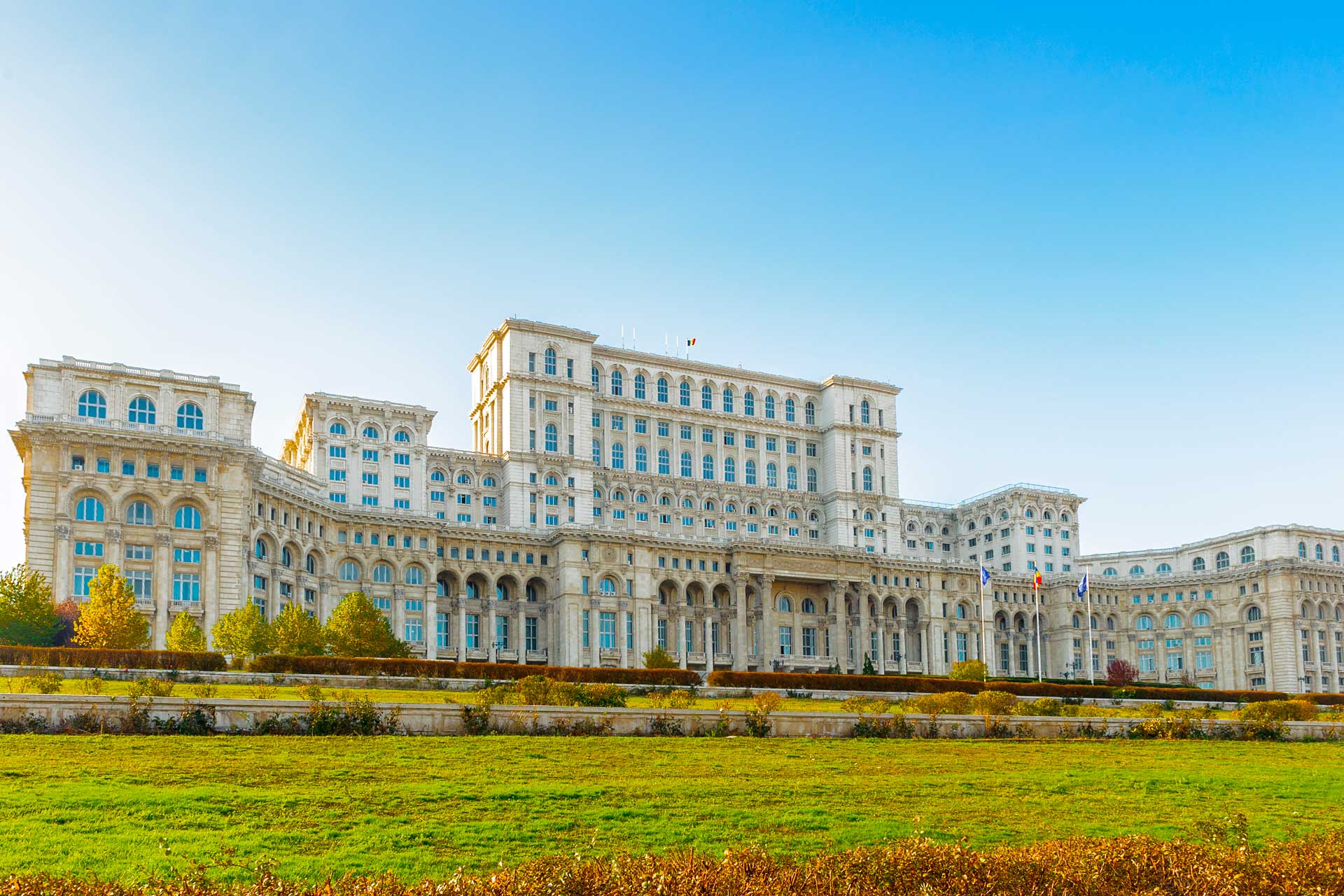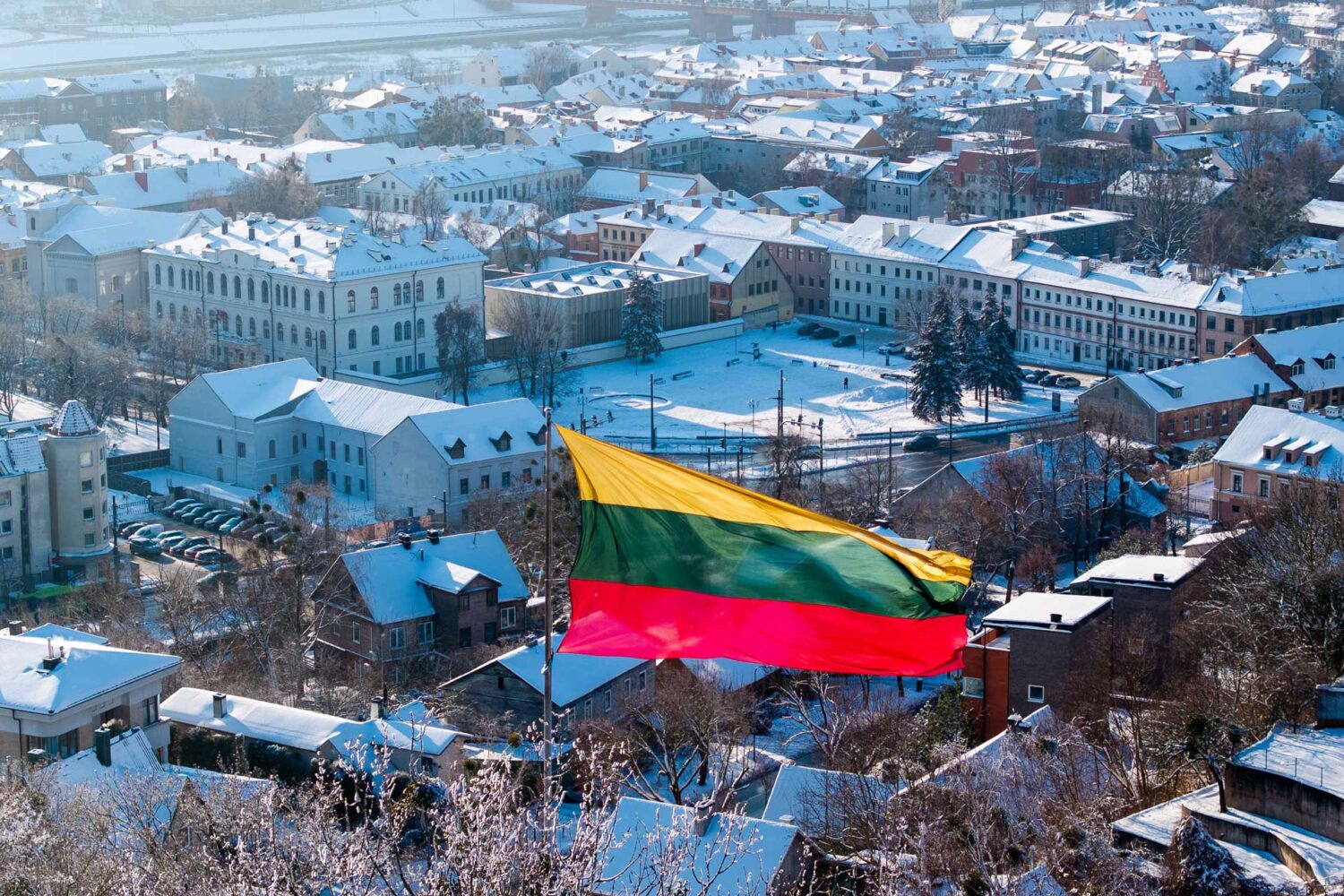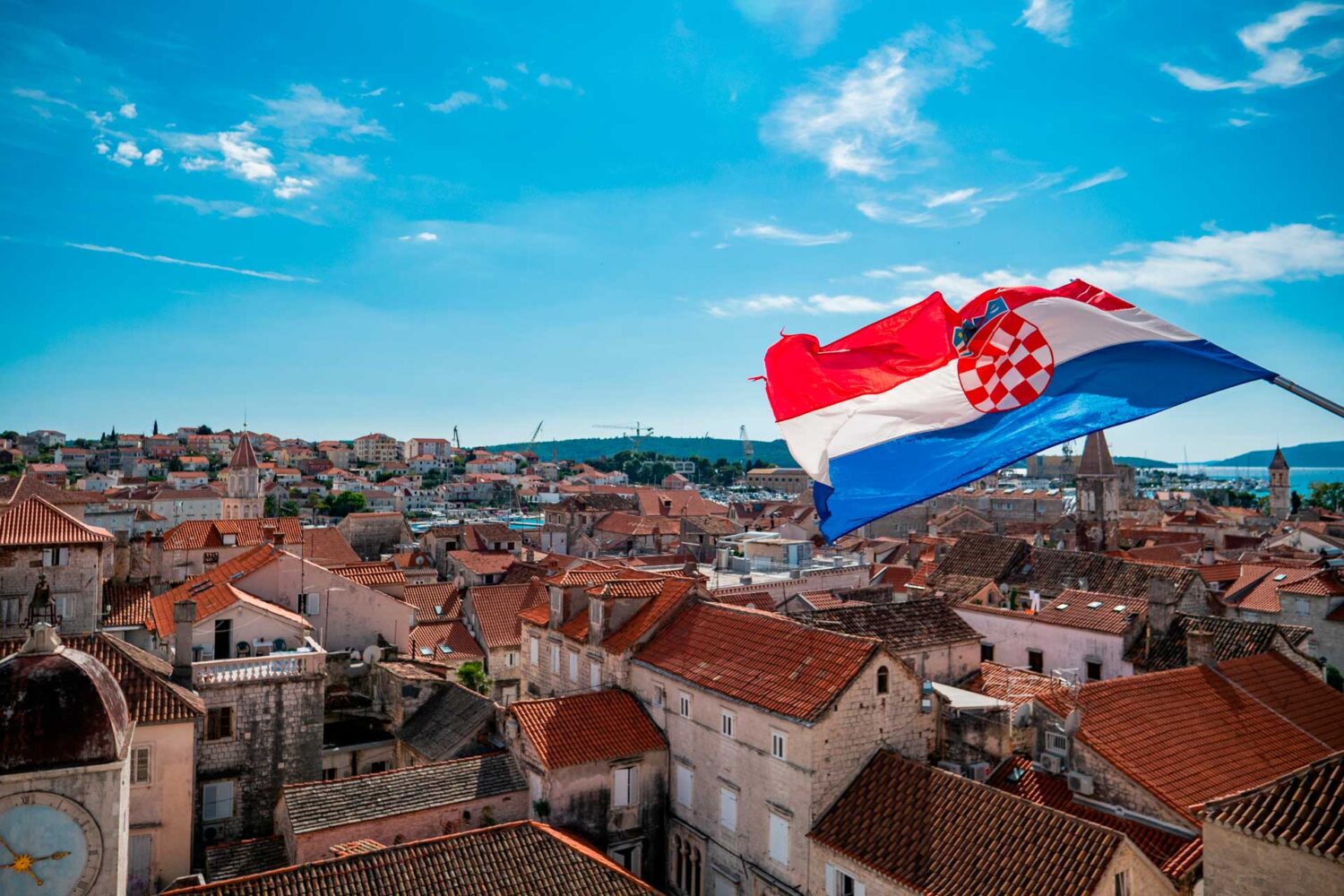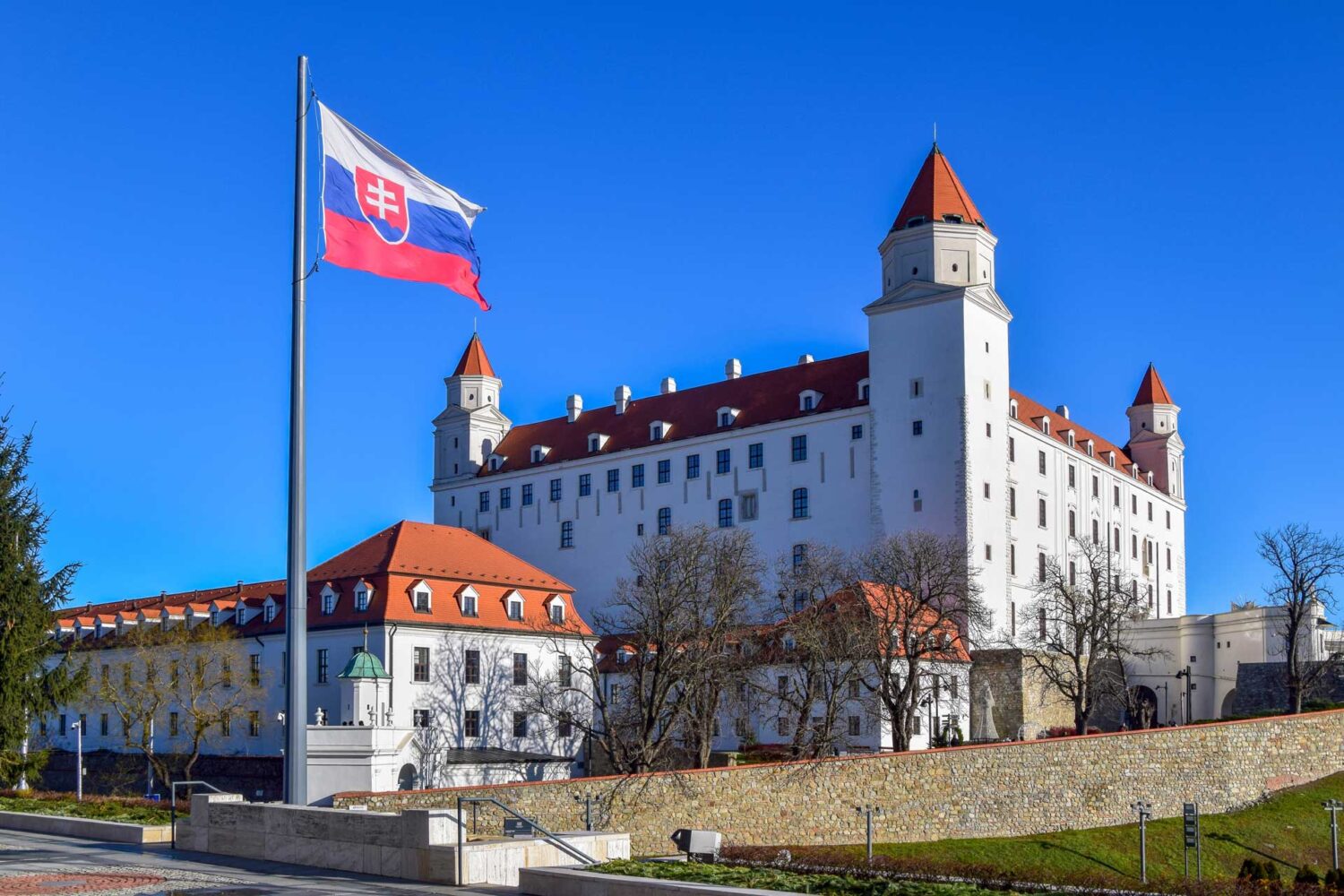Romanian citizenship opens the door to the European Union for foreigners with the right to live and work freely in any EU country. Unlike a temporary residence permit (TPL) or even a permanent residence permit (PML), a Romanian passport makes you a full-fledged citizen of the European Union with all the associated privileges. While residence permit and permanent residence permit you to reside in the country for a long time, citizenship provides additional opportunities: for example, to participate in elections, to receive EU consular protection abroad and not to be limited to Romania alone for residence.
Obtaining Romanian citizenship is particularly interesting for several categories of applicants. First, descendants of Romanian citizens – for example, residents of Moldova, Ukraine or other countries whose ancestors were born when their territories were part of Romania. Secondly, immigrants already living in Romania for work, study or family reasons who want to consolidate their status. Thirdly, to those seeking one of the world’s strongest passports for the sake of visa-free travel and new opportunities. Below we will go into detail about the benefits of Romanian citizenship, the grounds and ways to obtain it, eligibility requirements, deadlines, costs and other important nuances.
Do you want to know if you are eligible for Romanian citizenship and which path will be the fastest for you? Leave a request for a free consultation with Mycitizenagency lawyers. We will check your grounds, evaluate your prospects and propose the best solution based on your situation.
Advantages of Romanian citizenship
The Romanian passport gives its holder the status of an EU citizen with all the advantages that this entails. Here are the main advantages that new Romanian citizens receive:
- Freedom of movement.
A Romanian citizen can travel visa-free to more than 170 countries around the world. In 2025, the Romanian passport provided visa-free or simplified entry to 178 countries, ranking 15th in the global ranking of passports. All European states (including Schengen and the UK), many countries in the Americas, Asia and other regions are accessible without restriction. Electronic eTA authorization is available for travel to Canada, and entry to the US has been planned under ESTA (although a final decision has not yet been made). - Right to live and work in the EU.
Romanian citizenship automatically makes you an EU citizen. This means the ability to live in any EU country without restrictions and to work there legally without additional permits. For example, the holder of a Romanian passport can move to France, Germany or any other EU country, get a job, open a business – in short, enjoy all the rights guaranteed by the EU legislation. - Social guarantees and education.
Romanian citizens have access to public medicine and social security system both in Romania itself and when moving to other EU countries. They have access to European schools and universities on the same rights as locals, often on preferential terms or with lower tuition fees. EU citizenship also entitles them to pensions and other social benefits if the conditions of a particular country are met. - Dual citizenship. Romania allows dual and even multiple citizenship.
Getting a Romanian passport does not require renouncing your original citizenship – at least from the point of view of Romanian law. This is a big plus for those who want to keep in touch with their homeland. (Read more about the nuances of dual citizenship in the section below). - Other benefits.
With a Romanian passport, you can vote in elections and referendums in the country, and participate in European Parliament elections. Citizens also enjoy the protection of Romanian consulates abroad, and in their absence – any diplomatic mission of the EU countries. In addition, Romania is a relatively inexpensive and comfortable country to live in, and obtaining citizenship can be a step towards a permanent move to Europe.
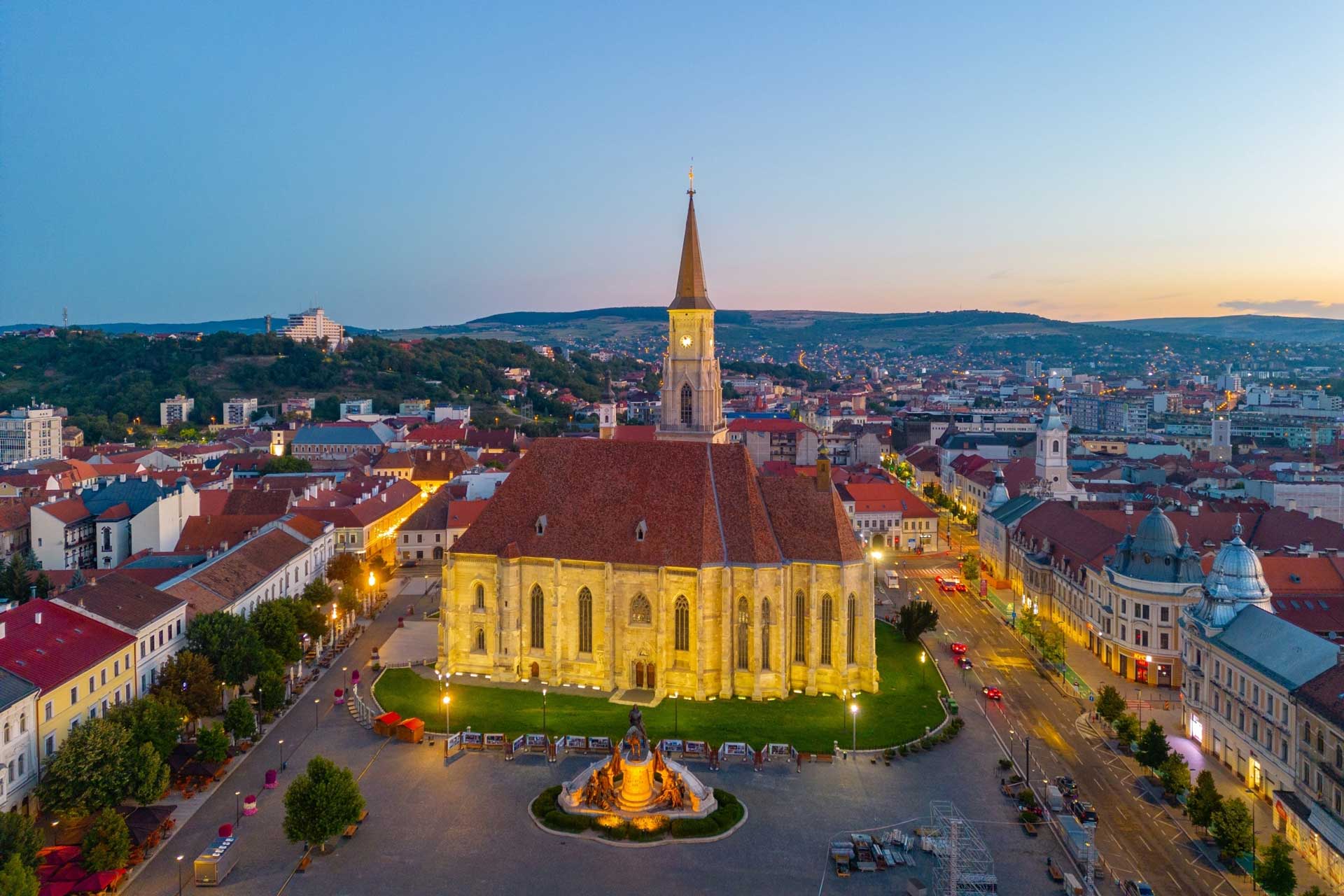
How to obtain Romanian citizenship
Romanian legislation provides for several grounds for acquiring citizenship. Let us take a closer look at the main ways of obtaining a Romanian passport and the key steps in each case.
Birth or adoption
Any child who has at least one parent who is a Romanian citizen automatically becomes a citizen of Romania by birthright. It does not matter whether the child was born on the territory of Romania or outside of it – the fact of the parents’ citizenship is important. Exception – if the child is found on the territory of Romania, and the parents are unknown: then the child is assigned Romanian citizenship until the circumstances are clarified. Similarly, if a foreigner under the age of 18 is officially adopted by a Romanian family, he is granted Romanian citizenship from the moment of adoption. In these situations, no special application for naturalization is required – citizenship is conferred by law. It should be remembered that simply being born on the territory of Romania does not confer citizenship if the parents are foreigners without Romanian citizenship.
Naturalization (long-term residence)
The classic immigration route is to first move to Romania, live there for many years and then obtain citizenship by petition. It starts with a long-term D visa and a residence permit (usually for the purpose of work, study or family reunification). After 5 years of continuous stay (at least 183 days per year), you can apply for a permanent residence permit. And already having the status of permanent resident, after 8 years of cumulative residence, you can apply for citizenship.
Please note: it is important not to receive social benefits and have sufficient income while living in Romania, otherwise naturalization may not be approved. Also, the applicant needs to integrate: learn Romanian language, know the basics of history and culture of the country. All these aspects are checked when applying – the applicant is interviewed by a commission and then takes an oath of allegiance.
In some cases, the law allows to reduce the required period of residence. From March 2025, new rules apply: the period can be reduced to 5 years (i.e., by 3 years) for applicants who have actively participated in Romanian society – for example, are EU citizens who have lived and worked in Romania, or refugees who have achieved high results in their studies or work. Thus, for the majority of immigrants the naturalization path remains the longest – about 8-9 years, but the requirements are clearly defined and if they are fulfilled, the chance of obtaining a passport is quite high.
Restoration of citizenship (repatriation by origin)
Persons whose parents, grandparents were born or lived before 1940 in the territories that were part of Romania can apply for a passport in this case. This category includes, first of all, natives and descendants of the inhabitants of present-day Moldova, as well as parts of Ukraine (northern Bukovina, Bessarabia, etc.) that were once part of Romania. This method is regulated by Article 10 of the Law on Citizenship and allows such applicants to repatriate, which is to restore the Romanian citizenship lost by their ancestors.
The applicant must prove his/her family connection with the Romanian ancestor – usually archive documents are provided: birth certificates, marriage certificates, metric records, etc. All documents of foreign countries must be translated and legalized (through apostille). The application can be submitted in person through the Romanian Consulate in your country or online, by signing up through the eConsulat portal. The case is examined by a special Commission under the Romanian Ministry of Justice. After verifying the documents and background, the Commission decides on the granting of citizenship. The procedure is finalized by taking an oath. As a result, the applicant receives a certificate of citizenship, on the basis of which an internal passport (ID-card) and a Romanian passport can be issued. This way is usually faster and cheaper than many years of naturalization: it exempts from the requirement of residence in the country and takes about 6-14 months on average.
Find out how to obtain citizenship faster
Marriage to a Romanian citizen
Although the mere fact of marriage or marriage to a Romanian citizen does not automatically confer citizenship, marriage facilitates and accelerates naturalization. The period of residence required for application is reduced from 8 to 5 years. It is important that the marriage must be officially registered and the couple must live together for all these 5 years.
The application procedure is similar to the usual naturalization: you need to obtain a long-term residence permit on the basis of marriage and live under it for the required period of time. Then collect the necessary documents (including the marriage certificate) and submit the application to the Ministry of Justice. The candidate must still meet the general requirements (language skills, no criminal record, etc.). If the marriage is terminated (divorce) before applying for citizenship, the 5-year grace period is of course lost – then the full 8-year period will be required to be lived in.
Investments and business
It is not possible to obtain Romanian citizenship directly for investment – there is no law allowing you to buy a passport outright. The state requires investors to live in the country for a set period of time. Nevertheless, investing in Romania is useful from the point of view of immigration: having invested €1 million, a foreign investor can first obtain a residence permit (visa category D/AI – for significant investments) and then after 5 years – permanent residence.
That is, money can help to get the status of permanent resident faster. But the further path to citizenship is the same as for everyone and will take at least 8 years. Previously, investors were allowed to apply for citizenship after 4 years of residence, but this benefit is canceled in 2025. Therefore, investors usually consider Romania not for an instant “golden passport”, but for long-term business with the prospect of naturalization.
Exceptional merit (honorary citizenship)
In exceptional cases, Romanian citizenship may be granted by direct decision of the authorities for outstanding services to the country. Such honorary citizenship is very rarely conferred, for example, to famous cultural, sports and scientific figures of world level. Such a process takes place outside the usual framework: the parliament or the president issues a decree on naturalization of a particular person without meeting the standard requirements. For ordinary immigrants this way is not relevant, so it is enough to know about its theoretical existence.
Not sure which way is right for you? Our lawyers will help you analyze your situation and choose the most effective way to obtain a second EU passport. Leave a request – and get a personalized strategy of citizenship registration taking into account all legal nuances.
Find out details about applying for an EU passport at a free consultation
Fill out the simple form and an immigration lawyer will contact you shortly
Procedure for obtaining Romanian citizenship: step by step
If you fit into one of the categories and decide to obtain Romanian citizenship, it is important to understand the procedure and prepare properly. The following is a typical procedure for foreigners applying for citizenship (first of all, it refers to naturalization and repatriation):
- Collection of documents.
At the first stage, the applicant prepares a full package of documents. The exact list depends on the basis, but usually includes: completed application form, foreign and internal passports, birth certificate, documents confirming the current basis (for example, marriage certificate to a Romanian citizen or documents of a Romanian ancestor), certificate of no criminal record, documents on income and housing in Romania, photos and receipts of payments. All foreign documents must be translated into Romanian and notarized, with an apostille if necessary. Mistakes at this stage are inadmissible: if something is missing or there are problems with the authenticity of the papers, the process will be greatly delayed or the application will be rejected. - Filing of Application. The finished dossier is submitted in person by the applicant. This can be done in two ways: either directly in Romania (through the office of the National Directorate of Citizenship at the Ministry of Justice in Bucharest) or through the Romanian Consulate in your country. Filing through the consulate is convenient because it does not require a long stay in Romania – it is enough to register in advance through the online system eConsulat and come at the appointed time. There is a small state fee (or no fee at all – see the section on fees). The application is registered and the applicant’s basic data is published in the Monitorul Oficial (Official Gazette) at the applicant’s expense. From this point onwards, the processing time starts.
- Examination and verification.
The package of documents is examined by the competent Citizenship Commission of the Ministry of Justice. By law, the Commission cannot make a decision earlier than 30 days after publication in the Monitorul Oficial. In practice, the review takes much longer – months and even years. During the process, all submitted data is checked: origin, legality of residence, absence of criminal record, payment of taxes, etc. The Commission may request additional information or additional information. The Commission may request additional information or documents. The applicant may also be invited for an interview, usually a short interview where the basic understanding of the language and knowledge about Romania is checked. Failure to appear without a valid reason for 2 consecutive years will result in the application being left without consideration, so it is important to keep in contact with the authorities.
In general, this stage requires patience: for example, in the case of repatriation, the official waiting period for a decision is now up to 2 years, although it is often faster (1 year). In the case of naturalization after 8 years of residence, the verification process usually takes about a year. It is impossible to speed up the review – it is strictly according to the order of the queue and regulations. - Decision and Order.
After the completion of the verification, the commission issues a decision and sends the case to the Romanian Minister of Justice. If the decision is positive, the order granting citizenship is issued and published in the Monitorul Oficial. The order includes the names of all new citizens who have been approved. From that moment, the applicant acquires the right to citizenship, but it must still be formalized by an oath. If citizenship is denied (for example, because conditions are not met or irregularities are detected), the applicant is informed of the reasons and the decision can be appealed in court or resubmitted at a later date. - Taking the Oath of Office.
This is a mandatory final procedure for all new citizens over 18 years of age. The oath is an oath of allegiance to Romania, which must be recited in Romanian in front of authorized persons. The text of the oath includes the promise to respect the constitution and laws, to be loyal to the Romanian people. The ceremony usually takes place in the presence of a representative of the Ministry of Justice or the prefect. If the application was submitted through a consulate, the oath can be taken at the consular office. The law requires this to be done within 6 months from the date of the order.
If the new citizen fails to attend the ceremony without a valid excuse, the order may be revoked. During the oath, sometimes a few simple questions are asked in Romanian – for example, asking to sing the anthem or to answer whether the text of the oath is clear – so it is important to have at least a basic command of the language. - Receipt of citizenship documents.
Immediately after taking the oath, the applicant is presented with the Certificate of Citizenship – an official document confirming the acquisition of citizenship. On the basis of this certificate, it is possible to issue Romanian personal documents: internal ID-passport (buletin) and passport. As a rule, at the consulate, the new citizen can apply for a Romanian passport, which is produced within a few weeks. From that moment on, you have all the rights of a Romanian and EU citizen and the citizenship process is complete.
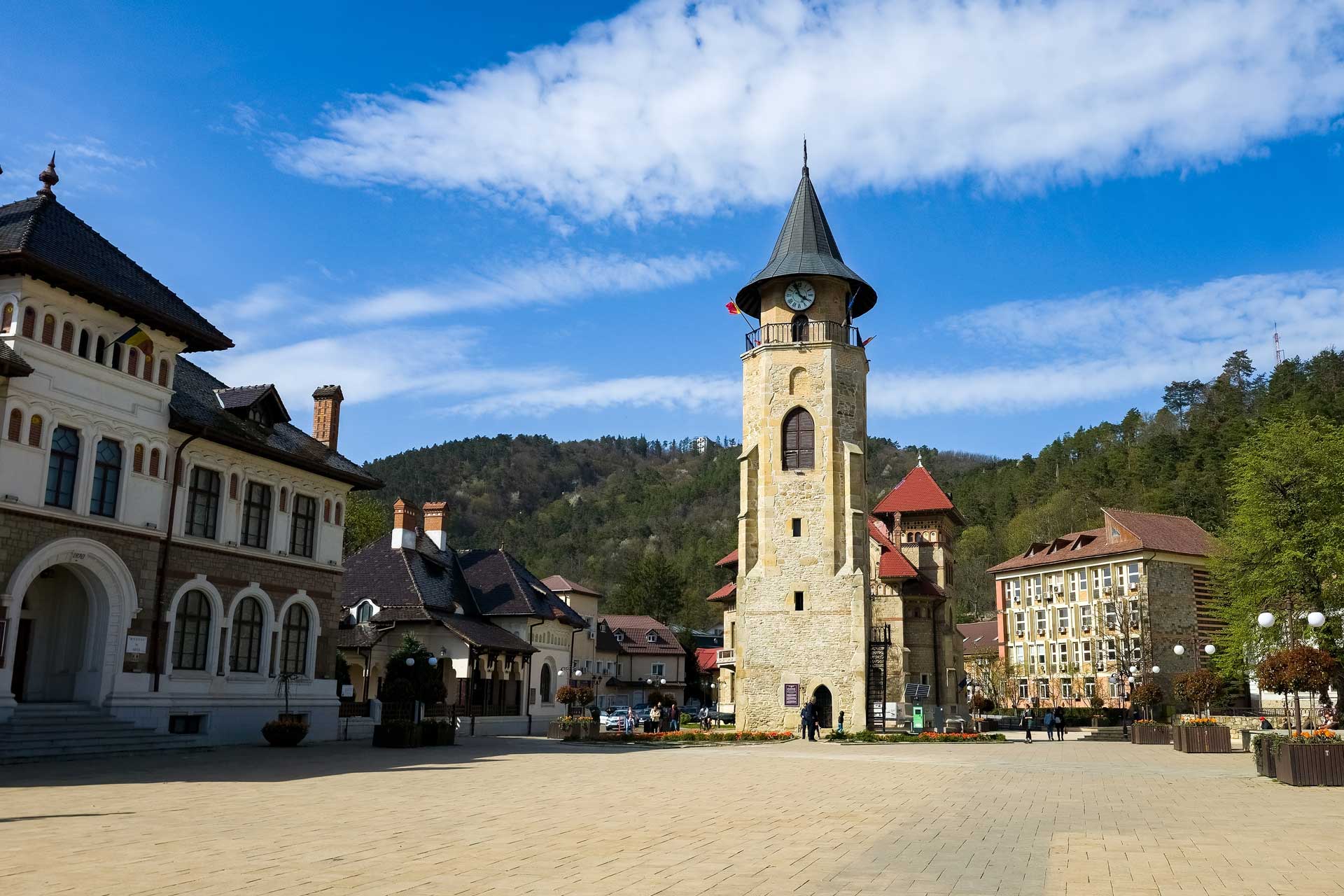
Requirements for applicants for Romanian citizenship
What requirements must a foreigner meet in order to obtain Romanian citizenship? The main conditions are set out in Article 8 of the Law on Romanian Citizenship. Let us summarize them in a simplified form:
- Age. The applicant must be an adult, that is, over 18 years of age. Children may acquire citizenship together with their parents (automatically at birth or adoption, or at the parents’ request as part of the family file).
- Duration of residence. Naturalization requires at least 8 years of legal residence in Romania (with interruptions not more than allowed). If the applicant is married to a Romanian citizen, 5 years from the date of marriage is sufficient. In any case, at the time of filing, the applicant should normally have permanent resident status or long-term resident status in the EU in Romania. Repatriation applicants do not have a residency requirement, but must prove kinship with a Romanian ancestor.
- Law-abiding and trustworthy. The candidate must not pose a threat to national security and public order. It is necessary to confirm the absence of convictions for serious crimes (certificates of criminal record from Romania and all countries of residence). General behavior is also considered – compliance with the law, absence of serious administrative offenses. The applicant certifies in writing that he/she has not participated in or supported in the past actions against the Romanian State.
- Legal means of subsistence. It is necessary to have a legal income or savings sufficient to live in Romania. In practice, this is confirmed by certificates of earnings, tax returns, bank statements, etc. The availability of housing (own or rented) is also taken into account. The candidate must not be dependent on the Romanian state (receiving social assistance) during the period of residence.
- Language proficiency and integration. An applicant for citizenship by naturalization is obliged to speak Romanian at a level sufficient for communication. Although the law does not require a certificate, the interview will check whether the person is able to communicate and understand the questions. A level of about A2-B1 (basic conversational) is sufficient. Knowledge of the basics of Romanian culture and history is also tested – usually a few questions about national holidays, major historical events, and symbols of the country. The aim is to make sure that the applicant has integrated into Romanian society.
- Knowledge of the Constitution and the national anthem. By the time of the oath of office, the candidate must be familiarized with the content of the Romanian Constitution and learn the words of the national anthem. At the ceremony, the candidate may be asked to confirm that he/she understands the constitutional foundations of the system and can sing the anthem. This demonstrates the loyalty of the new citizen.
All of the listed assessment criteria are quite serious, but feasible. In the end, the decision on citizenship is made individually, taking into account a combination of factors. If you comply with the law, are integrated and prepared for the procedure – the chances of getting the desired passport are very high.
It should be noted separately that Romania does not require renunciation of former citizenship – dual citizenship is allowed (see the next section). However, the applicant must independently find out whether his/her home country recognizes the second citizenship. If they do not, they may have to choose (for example, in some countries, obtaining a foreign passport leads to automatic loss of citizenship of that country). Romania is not responsible for this.
Check your chances of getting an EU passport through a simplified procedurе
Sign up for a free consultation to learn more from the experts at Mycitizenagency as soon as possible
Timing and cost of obtaining Romanian citizenship
How long do I have to wait for citizenship? The timeframe depends directly on the chosen basis:
- Naturalization through residence is the longest way. The required minimum is 8 years of living in Romania (5 years if married) plus the time to process the application (usually from a few months to ~1 year). So, from scratch, the process can take about 9 years (or ~6 years for married). Some categories may apply a little earlier – for example, EU citizens or refugees on special merit after ~5 years, but these are rather exceptions.
- Repatriation by descent is an expedited procedure. It does not require residence in the country, so all time is spent on bureaucratic procedures. The average period is about 1.5-2 years, in ideal cases it is possible to manage even in 12 months. However, due to the large number of applicants from neighboring countries, the actual waiting time is often stretched. Nevertheless, even 2-3 years is much faster than naturalization.
- Citizenship by marriage is actually within the same framework as naturalization, only the process can be started earlier (after 5 years of marriage). Thus, the total timeframe would be ~6-7 years of married life, including about a year for the citizenship procedure.
- Other cases. For children at birth or adoption, citizenship is issued immediately (think 0 years). Investors get a passport on general grounds – that is also ~8 years from the date of moving (some could earlier, but after 2025 there are no more benefits). Honorary citizenship can be granted in a matter of months, but this is an unpredictable and rare scenario.
How much does it cost? Financially, obtaining Romanian citizenship is considered to be one of the most affordable in Europe. There is no state duty for applying for citizenship – the procedure itself is free of charge. You will not have to pay for the very fact of processing the case. The main costs are for related services and required documents:
- Preparation of documents: payment for translation and notarization of documents, apostille, obtaining certificates. Depending on the number of documents, these costs usually amount to several hundred euros. For example, translation of one document costs about €20-50, state fees and duties for certificates, certificates, etc. total about €100-200.
- Residence in Romania: relevant for the path of naturalization. During 8 years of life, the applicant will spend considerable sums on rent or purchase of housing, food, insurance, etc. It is estimated that the minimum annual expenses are from €10 thousand per year, totaling tens of thousands of euros for the whole period. In fact, this is the “hidden cost” of naturalization, making it expensive compared to repatriation.
- Legal services: many applicants use the help of migration lawyers or specialized companies to collect documents and support the case. This is more convenient and increases the chances of avoiding mistakes, but it costs money. In Romania, citizenship services for foreigners usually cost several thousand euros. For example, for CIS residents, full support for the repatriation program costs from €3000 and more. These costs can be minimized when filing independently. It is up to you – on the one hand, you can go through the process yourself, having carefully studied the requirements; on the other hand, having an experienced representative will save you a lot of hassle and risks.
Below is a summary table of the main ways of obtaining Romanian citizenship, with approximate terms, conditions and costs:
| Method | Minimum term | Basic terms and conditions | Indicative costs |
|---|---|---|---|
| Naturalization (residence) | 8 years of residency + ~1 year of review = ~9 years | Continuous legal residence in Romania for at least 8 years; permanent residence permit; stable income and housing; no criminal record; integration into society (knowledge of language, culture, history) | There is no state fee for the application. Expenses for translations, documents ~100-200 €. The main expenses are living in Romania for 8 years (rent, food, insurance, etc. - tens of thousands of €). Lawyer's services on request: ~1000-5000 €. |
| Repatriation (by origin) | ~1-2 years of consideration | Direct ancestor (parent, grandparent) - Romanian citizen in the past; documentary proof of kinship; no criminal record; basic command of Romanian language. | No state duty. Translations, apostilles, certificates: ~300 € in total. No need to reside in Romania (savings). Intermediary services (optional) ~2000-4000 €. |
| By birth or adoption | Citizenship is assigned immediately upon birth/adoption | Being born to a Romanian citizen parent (anywhere) or being adopted by Romanian citizens (if a foreign child). | No state fees. Only a birth certificate is required at the Romanian Registry Office, then a passport can be obtained. In case of adoption - adoption certificate. |
| Through marriage to a citizen | ~5 years of marriage + ~1 year of formalization = ~6 years | Formal marriage to a Romanian citizen/citizen; cohabitation for at least 5 years; language proficiency and fulfillment of naturalization conditions (income, no criminal record, etc.). | Marriage itself and the application are free. The costs are the same as for naturalization: living in the country for 5 years, obtaining a residence permit/permanent residence, and preparing documents. |
| Investments | ~5 years to permanent residence + ~3 years to citizenship = ~8 years | Investing > €1 million in the Romanian economy (to obtain an investor's residence permit); then fulfilling all standard requirements for naturalization (residence, language, absence of violations, etc.). | Investment from €1,000,000. The other costs are the same as for regular naturalization (see above). No additional fees are required to apply for citizenship. |
| For special merit | Individually (sometimes several months) | Outstanding services to Romania: sports achievements, cultural contributions, world-class scientific discoveries, etc. | The applicant usually does not bear the cost - everything is done on the state's initiative. |
Note: Costs are approximate based on public data and offers of migration firms. Official direct fees are minimal – the main costs are related to accommodation and/or processing services.
Dual citizenship: admissibility and risks
Romanian legislation allows dual citizenship. A foreigner who acquires a Romanian passport is not obliged to renounce his/her former citizenship; moreover, the right to retain the second citizenship is explicitly stated in the documents. Many ethnic Romanians from CIS countries have successfully obtained Romanian passports and remained citizens of their countries. Also, Romanian citizens themselves, naturalizing abroad, do not lose their Romanian passport. Thus, from the Romanian side there are no obstacles to multiple citizenship.
However, it is important to realize that the issue is also regulated by the laws of your country of origin. Romania does not interfere in the policies of other states and does not notify them about the issue of its citizenship (this information, however, may be public). If your home state does not recognize dual citizenship, risks may arise.
Examples: Dutch citizens who regained Romanian citizenship automatically lost their Dutch citizenship until 2003. Belgium also until 2007 revoked the citizenship of those who voluntarily obtained another citizenship. At the moment, many countries have relaxed the rules, but there are still states that categorically do not allow second citizenship (for example, China, India). Therefore, find out the laws of your country in advance. In most cases there are no serious consequences – hundreds of thousands of people around the world have two or more passports.
Romanian citizenship is a real opportunity to become part of the European Union, to enjoy freedom of movement and other benefits, while remaining, if desired, a citizen of your own country. For some people it is a chance to historically restore justice and return the passport of their ancestors, for others it is the final step on the way to a long immigration and career in Europe. Romanian authorities are generally loyal to new citizens, especially if they are connected to Romania by origin or have lived there faithfully for many years.
In conclusion: Romanian citizenship is one of the most accessible in the European Union in terms of requirements, especially for descendants of Romanian roots. With a competent approach and compliance with all conditions, you are almost guaranteed to get the coveted EU passport. The main thing is to prepare thoroughly, act legally and patiently. The immigration process is a marathon, not a sprint. Set realistic deadlines and do not be nervous if the decision is delayed for months – it is normal. If in doubt about the nuances, it is better to consult a lawyer to avoid mistakes.
Frequently Asked Questions about Romanian Citizenship
We have compiled answers to the most common questions about obtaining Romanian citizenship. If you did not find the information you were looking for or want to learn more about the requirements, timelines, and benefits of a Romanian passport, contact us for a free consultation.
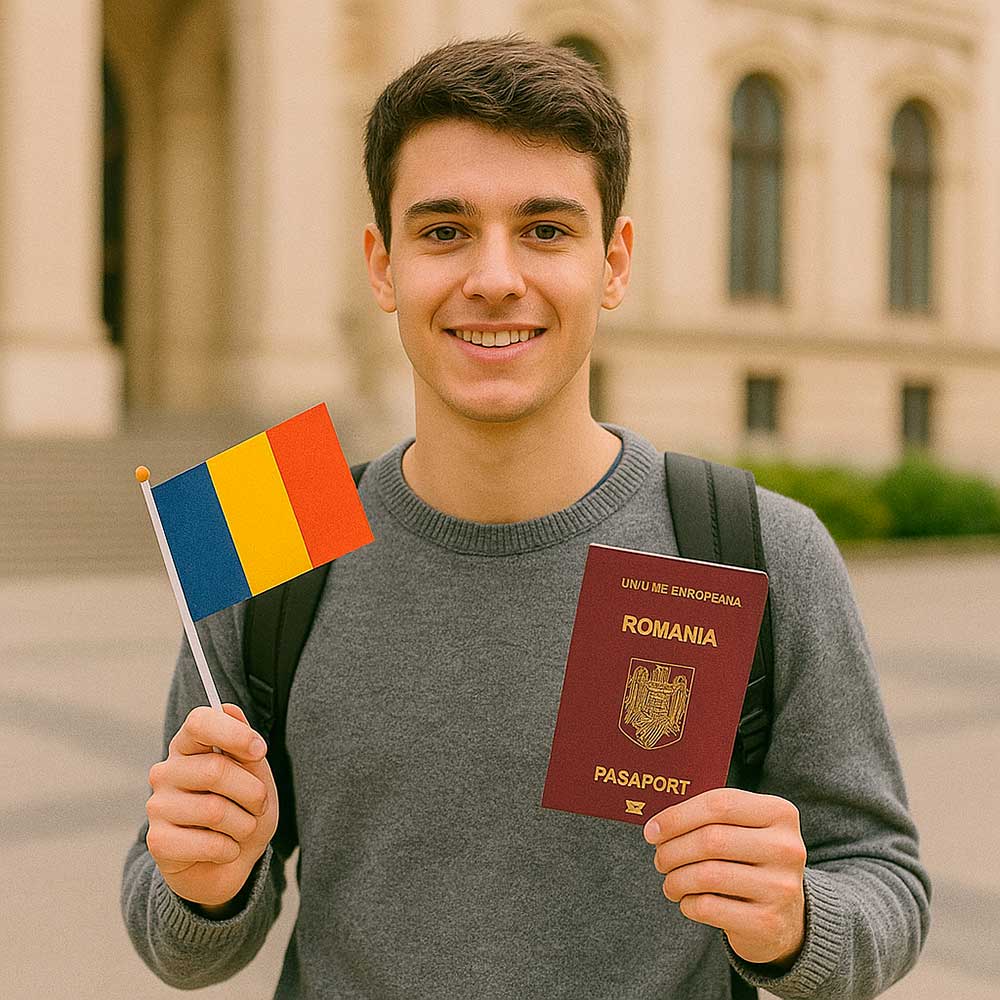
Yes, if you are applying by repatriation (for example, on the basis of Romanian roots), no residence or visit to Romania is required. All documents can be submitted through the consulate and the oath can be taken abroad. This makes the procedure convenient for applicants from Moldova, Ukraine, Russia and other countries.
Contact the state archives of Romania or Moldova – many documents on births, marriages, etc. are stored there. There are also private companies and lawyers who provide archive data recovery services. Sometimes circumstantial evidence is enough, if it is official and confirms kinship.
The law does not require a certificate, but you must be fluent in understanding and pronouncing the text of the oath, as well as answering simple questions from the commission. Usually A2-B1 level (spoken minimum) is sufficient. At naturalization, language skills are checked personally, at repatriation – softer, but also desirable.
No, the mere fact of obtaining citizenship does not make you a tax resident. You are obliged to pay taxes in Romania only if you live there for more than 183 days a year or have income from Romanian sources. So, it is possible to have a passport and live in another country without fiscal consequences.
Romanian authorities are obliged to motivate the refusal. Most often the refusals are related to an incomplete package of documents, falsification of papers, criminal record or insufficient knowledge of the language. You have the right to appeal to the court or to collect a new set of documents and reapply. Refusals without reason are extremely rare and are subject to appeal.
Marriage to a Romanian citizen does not give automatic citizenship. You may apply after 5 years of residence in Romania (or 3 years if married to a Romanian and living together in the country).
You can regain Romanian citizenship through the repatriation procedure if you or your ancestors were Romanian citizens. The process is handled by the National Authority for Citizenship, requires proof of descent, clean criminal record, and basic knowledge of Romanian, and does not require residence in Romania.
By descent, Romanian citizenship is typically obtained within 6–18 months, depending on the completeness of documents and the workload of the National Authority for Citizenship.
